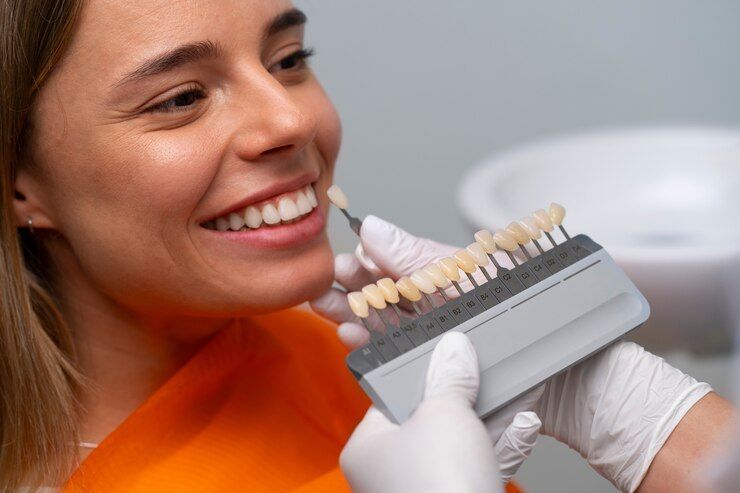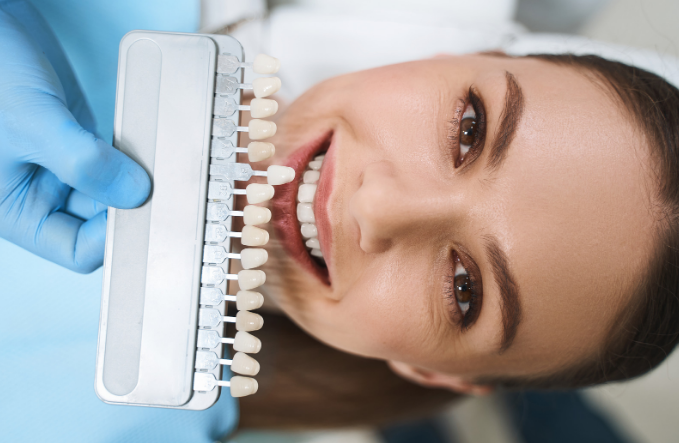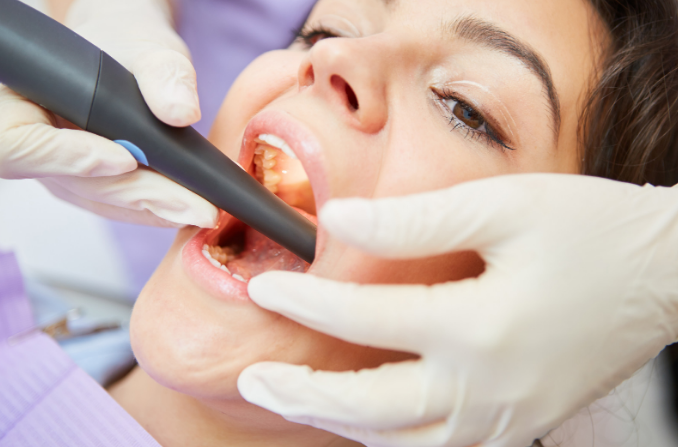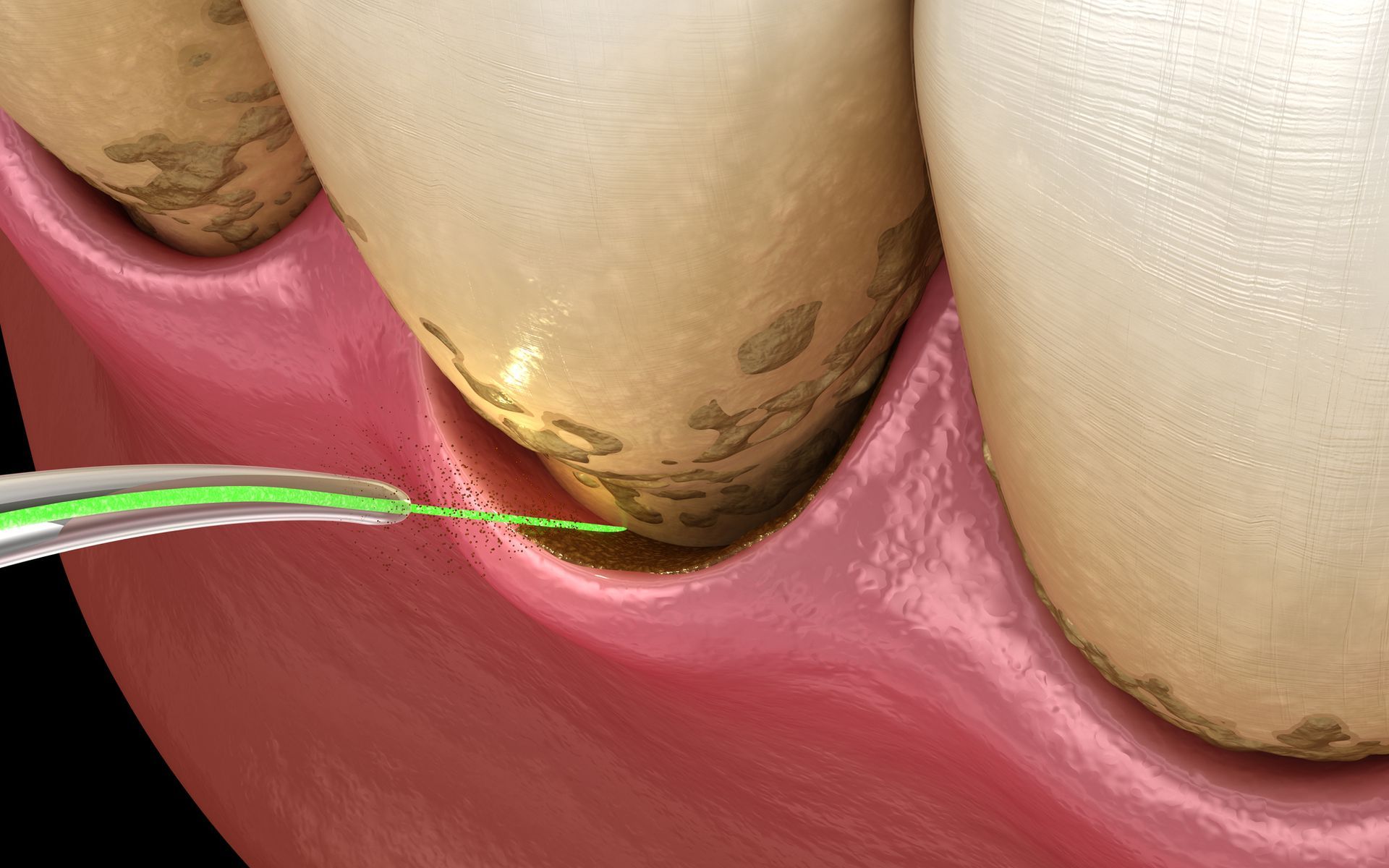By Shashwat NewAccount
•
May 8, 2025
At Crown Point Dental Care , in the heart of Columbus, Ohio, we understand that every family has unique dental needs. Our commitment to providing exceptional care goes beyond simply treating dental issues; it's about fostering a welcoming environment where every member of your family feels valued and comfortable. Below, we explore nine ways our dedicated team tailors our services to meet your family's distinctive requirements, ensuring that everyone leaves with a healthy and happy smile. 1. Comprehensive Family Dentistry At Crown Point Dental Care, we believe in treating patients of all ages. Our practice is designed to accommodate the dental needs of your entire family, from toddlers to seniors. This comprehensive approach allows us to monitor and manage your family's oral health over the years, ensuring that as their needs change, we are there to provide the necessary dental care. Whether it's a child's first dental visit or a routine check-up for grandpa, our experienced team is equipped to handle it all with compassion and expertise. We recognize that early dental experiences can shape a child's attitude towards oral health for life, and we strive to make those experiences positive and reassuring. Our family-oriented approach means that we not only treat dental problems as they arise but also focus on education and preventive care. By scheduling family appointments, we can streamline the process, making it easier for busy families to receive care without multiple trips to the office. This not only saves time but also promotes a sense of teamwork in maintaining your family's dental health. 2. Advanced Technology for Optimal Care We pride ourselves on utilizing the latest advancements in dental technology to enhance patient care. Our CEREC system, for example, allows us to create high-quality, custom crowns in just one visit. This not only saves you time but also ensures that the fit and appearance of your crown are perfect. Additionally, our Waterlase Dentistry technology minimizes discomfort during procedures, making dental visits more pleasant for both children and adults. By integrating cutting-edge technology into our practice, we are committed to providing your family with the highest standard of care. Moreover, our digital X-rays reduce radiation exposure and offer immediate results, allowing us to diagnose issues more efficiently. This technology is particularly beneficial for young patients, as it minimizes their discomfort and anxiety during imaging. We ensure that every tool we use contributes to a more effective and comfortable dental experience, reinforcing our commitment to patient-centered care. 3. Personalized Treatment Plans Every family member is unique, as are their dental needs. At Crown Point Dental Care, we take the time to understand each patient’s individual circumstances through comprehensive consultations. This process allows us to develop personalized treatment plans tailored to your family's specific needs, whether it involves preventive care, cosmetic enhancements, or restorative procedures. Our goal is to ensure that every treatment aligns with your family’s health goals and lifestyle. For instance, if a teenager requires orthodontic treatment, we will discuss various options, including traditional braces and Invisalign , to determine the best fit for their lifestyle and preferences. By involving patients in their treatment decisions, we foster a sense of ownership over their dental health, empowering them to make informed choices. 4. Focus on Preventive Care Prevention is central to our dental practice. We believe that a proactive approach to dental health is vital in reducing the risk of more serious issues down the line. Our team emphasizes the importance of regular check-ups, professional cleanings, and patient education on proper oral hygiene techniques. By instilling good habits in children and providing adults with the tools for maintaining their dental health, we help your family achieve long-lasting smiles. We also provide tailored oral health education based on each patient's specific needs. For example, we may offer dietary advice to help prevent cavities in children or discuss the importance of gum health for adults. Our goal is to equip your family with the knowledge and resources they need to make informed decisions about their dental care, ensuring that they understand the value of preventive measures. 5. Comfortable and Inviting Environment Understanding that many patients experience anxiety about dental visits, we strive to create a calm and inviting atmosphere. Everything at Crown Point Dental Care is designed to put patients at ease from our friendly staff to our comfortable waiting area. We also offer complimentary spa services and pre-op medications to enhance comfort during procedures. Whether it’s your child’s first visit or a routine appointment, we want everyone to feel relaxed and confident in our care. Our office decor is designed with families in mind, featuring bright, cheerful colors and child-friendly elements. We have dedicated spaces for children that incorporate fun and engaging activities, ensuring that even the youngest patients feel welcomed and entertained while waiting for their appointments. Our staff is trained to handle anxious patients with care, providing reassurance and support throughout their visit. 6. Flexible Payment Options We recognize that dental care can sometimes be an unexpected expense. Thus, we offer flexible payment options to accommodate varying financial situations. Our team is dedicated to finding ways to make dental care accessible for your family, regardless of insurance coverage. We work with patients to understand their financial needs and find suitable solutions that enable them to receive the care they deserve without financial strain. We believe financial concerns should never hinder quality dental care. Our knowledgeable staff can assist you in navigating your insurance benefits and exploring financing options that fit your budget. We want to ensure that your family can prioritize their dental health without added stress. 7. Specialized Services for Unique Needs At Crown Point Dental Care, we offer a variety of specialized services to cater to the diverse needs of our patients. For instance, we provide Invisalign treatments for teens and adults looking for a discreet way to straighten their teeth. Our Zoom Teeth Whitening service is perfect for those wanting to enhance their smiles. Additionally, we address sleep apnea through various therapies, including oral appliances for those who may be CPAP intolerant. This breadth of services means that whatever your family’s unique dental needs may be, we have the expertise and solutions to help. Furthermore, we offer pediatric dentistry tailored to the specific needs of children, focusing on preventive measures and education that set the foundation for a lifetime of good oral health. Our approach ensures that children feel comfortable and confident during their visits, turning what can often be a stressful experience into a positive one. 8. Commitment to Ongoing Education We believe that patient education is crucial in empowering families to take charge of their dental health. Our website features a wealth of resources, including informative articles and dental health videos that cover everything from brushing techniques to the impact of diet on dental health. We also encourage open dialogue during appointments, allowing patients to ask questions and learn about their treatment options. Our commitment to ongoing education ensures that your family is well-informed and confident in making decisions about their dental care. Additionally, we regularly update our patients on the latest trends and advancements in dental care, ensuring that they are aware of new treatments and technologies that might benefit them. Our goal is to create an informed patient base that understands the importance of proactive dental care and is engaged in maintaining their oral health. 9. Testimonials and Community Engagement Our patients' trust and satisfaction speaks volumes about the quality of care we provide. We take pride in the numerous positive testimonials from families who have experienced exceptional service at Crown Point Dental Care. Our practice is not just about providing dental services; we are committed to engaging with our community. We participate in various health fairs and educational events, sharing our knowledge and promoting dental health awareness. This outreach reinforces our dedication to ensuring that families in our community receive the best possible dental care. At Crown Point Dental Care , we are dedicated to meeting the unique needs of your family through comprehensive services, advanced technology, and a patient-centered approach. With a focus on preventive care and a commitment to ongoing education, we empower our patients to take charge of their oral health. Our inviting environment, personalized treatment plans, and flexible payment options make us a trusted partner in your family’s dental journey. Whether you are seeking routine care, specialized treatments, or simply want to maintain a healthy smile, we are here to help every step of the way. Your family deserves the best, and we are committed to providing exceptional dental care tailored to your unique needs. Book your appointment today and discover how Crown Point Dental Care can cater to your family’s unique dental needs!











